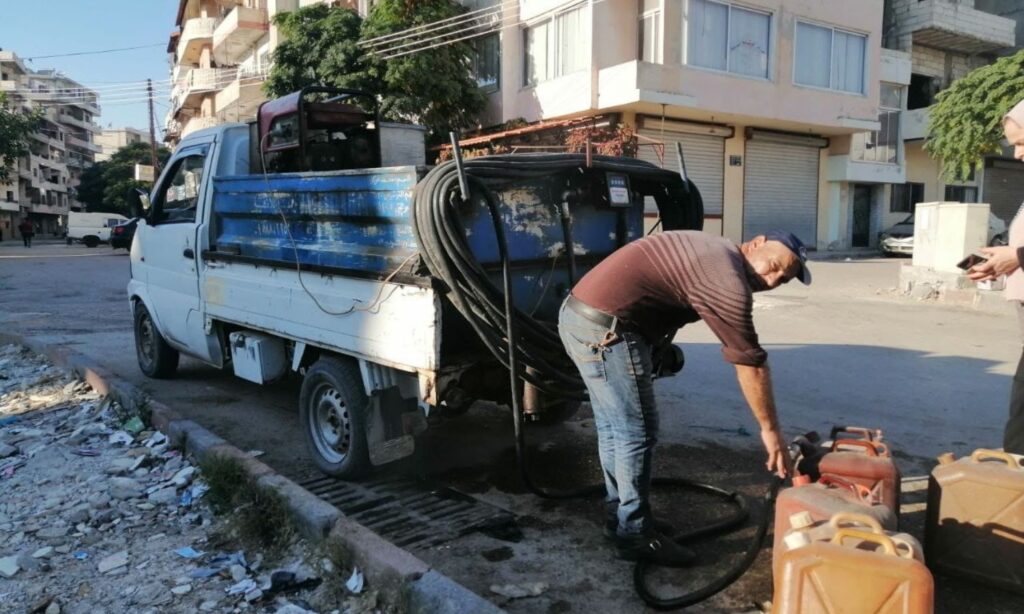The Ministry of Internal Trade and Consumer Protection in the Syrian regime’s government has doubled the selling price of one liter of subsidized heating diesel to more than double its previous price.
According to the decision issued by the ministry today, Wednesday, October 2, the ministry set the price of one liter of subsidized heating diesel at 5,000 Syrian pounds instead of 2,000 Syrian pounds.
The price hike comes at a time when regime-controlled areas are facing a fuel crisis that has been ongoing for about a month, without government solutions to alleviate the crisis, especially with falling temperatures and increased demand for fuel.
The distribution of heating diesel is scheduled to begin in early October, according to the Ministry of Petroleum, with a focus on prioritizing cold areas. However, distribution is usually delayed each year, and citizens may not receive their allocations until months into the winter season.
The regime’s government had raised the prices of both subsidized and unsubsidized fuel distributed via the smart card twice last September.
Since the adoption of a bi-weekly pricing bulletin based on cost since the end of last year, significant changes have occurred in fuel prices, with most bulletins recording price increases.
The regime’s government distributes fuel allocations to residents in its areas in a rationed manner, forcing them to resort to the black market to meet their needs. Prices vary according to demand and the availability of subsidized materials, often doubling during frequent fuel crises, and decreasing when materials are available through official channels.
The main crisis caused by the scarcity of fuel opens the door to accompanying crises, such as stopping production in several factories and professions that heavily rely on fuel, reducing electricity supply, and causing a transportation crisis, as drivers of public transport vehicles cannot operate without receiving their fuel allocations.
Most consumer goods’ prices are affected by the increase in fuel prices, amid the low purchasing power of the population and the deteriorating economic situation. Many families rely on remittances from their relatives living abroad to secure the minimum living requirements.
The price of a liter of heating diesel has been raised to more than double (Ministry of Internal Trade and Consumer Protection)











